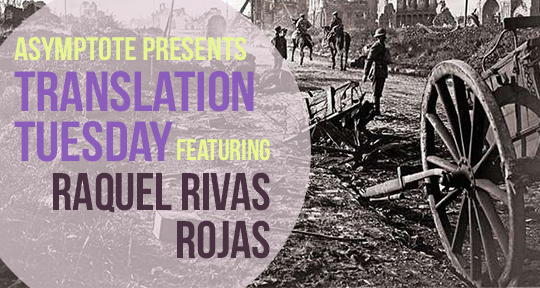Featuring work from thirty-four countries, the Spring 2022 issue is once again charting new territory across the landscape of world literature. From Hermann Hesse to Kim Hyesoon, as well as coverage of Ukrainian poetry and exceptional Swedish works in our Special Feature, these wonderful inductions into the English language are full of discoveries. Not sure where to begin? Read on for our blog editors’ curated selections!
Through the brutal scorchings and flighty erasures of passed time, Greek tragedies have endured—as though stone, and not words, were their material. Near as our own stories, ancient as storytelling itself, and inextricable from the passions they depict, the characters that had suffused the fifth-century Athenian air with their spectacle defy temporality, continuing to walk and rage within the immediate theatre of our world. In the betrayal of fathers and the names of flowers, in funerals and weddings, in any force that could be mistaken for fate. By the logic of the tragic’s pervasive mutability, their untimely timeliness, one is made to think of the ways cycles are kept and broken, if whether the knowledge of something coming has ever been enough to stop it.
On the mitigative potential of the tragedies, Brian Doerries (the founder of Theatre of War, a production company which stages performances for communities confronting urgent social issues) had posed a question: “What if tragedy is a form of storytelling that was designed . . . to wake us up to the slim possibility of human agency, of making a choice that averts imminent disaster before it’s too late? What if tragedy is as refined of an advancement as architecture or the sculpture, law, government of 5th century BCE . . . a form of storytelling that arose out of a necessity of nearly eighty years of war, to communalise trauma, give citizens permission to access and express their emotions, and help heal the city?” To conceive the life of these plays as not to instruct but to change, what emerges is how the devastation of tragedy offers us, by way of its lapidary endings, the opportunity for transcendence. In José Watanabe’s Antígona, translated with an impeccable ear by Cristina Pérez Díaz, Sophocles’ Antigone is given fluid, elemental form, a series of poetic rooms built for one actress to walk through, inhabiting their rhythm as she inhabits time. Written beneath the dense terror of civil conflict in Peru, Watanabe’s distilling of chorus into a single rivulet of speaking is to run a thin-wire sieve through the voracious appetite of mass violence and statistic, provoking the wide overarch of trauma into open intimacy, into something that is suffered individually, in bodies united by the likeness of experience but ruthlessly alone in bearing it. The voice is torn with the tension between thinking and knowing, between feeling and narration, spreading itself amidst the leaves of time:
The sacred eye of daylight does not penetrate that far
nor the cries of friends and relatives. In that silence,
death, laborious, enfolds the girl
in a dense cocoon of shadows.


